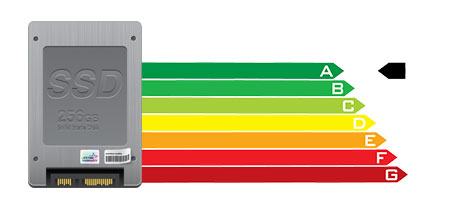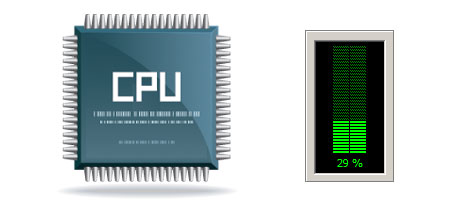Presently, all of the brand new personal computers contain SSD drives as an alternative for HDD drives. You’ll notice superlatives to them all around the professional press – that they’re faster and function better and that they are actually the future of home pc and laptop computer generation.
Then again, how do SSDs stand up inside the web hosting world? Could they be reliable enough to substitute the verified HDDs? At WWW Solutions, we will help you much better be aware of the dissimilarities among an SSD as well as an HDD and choose the one that best suits you needs.
1. Access Time
A result of a revolutionary new way of disk drive general performance, SSD drives make it possible for noticeably faster data file access rates. Having an SSD, data accessibility instances tend to be lower (just 0.1 millisecond).
HDD drives still utilize the same basic file access concept that was originally created in the 1950s. Although it was noticeably upgraded consequently, it’s slow as compared to what SSDs will offer. HDD drives’ data access speed ranges between 5 and 8 milliseconds.
2. Random I/O Performance
The random I/O performance is very important for the functionality of a data file storage device. We’ve run detailed assessments and have identified that an SSD can manage a minimum of 6000 IO’s per second.
During the very same lab tests, the HDD drives proved to be much slower, with only 400 IO operations maintained per second. Although this may appear to be a large amount, when you have a hectic server that contains plenty of well–liked sites, a sluggish harddrive may result in slow–loading sites.
3. Reliability
The lack of moving parts and spinning disks in SSD drives, and also the recent advances in electrical interface technology have resulted in a much reliable data storage device, with a typical failure rate of 0.5%.
To have an HDD drive to operate, it should rotate a couple metal hard disks at a minimum of 7200 rpm, holding them magnetically stable in the air. They have a wide range of moving elements, motors, magnets and also other tools loaded in a tiny space. Therefore it’s no surprise the regular rate of failure of any HDD drive ranges between 2% and 5%.
4. Energy Conservation
SSD drives function virtually noiselessly; they don’t produce extra warmth; they don’t mandate more chilling options and take in significantly less energy.
Tests have established the typical electricity use of an SSD drive is amongst 2 and 5 watts.
HDD drives are notorious for being loud; they can be prone to getting too hot and when you have several disk drives in one web server, you’ll want an additional a / c system just for them.
All together, HDDs consume between 6 and 15 watts.
5. CPU Power
SSD drives provide for faster data accessibility speeds, which generally, subsequently, enable the CPU to perform file requests much faster and then to return to different jobs.
The typical I/O wait for SSD drives is only 1%.
As compared to SSDs, HDDs permit reduced data file accessibility speeds. The CPU will be required to wait for the HDD to come back the requested data file, scheduling its allocations for the time being.
The typical I/O wait for HDD drives is approximately 7%.
6.Input/Output Request Times
In real life, SSDs operate as wonderfully as they have during our checks. We produced a complete platform backup using one of our own production web servers. Through the backup process, the common service time for I/O queries was in fact under 20 ms.
All through the identical trials with the same web server, this time around fitted out utilizing HDDs, effectiveness was much reduced. All through the hosting server back up process, the common service time for any I/O demands varied between 400 and 500 ms.
7. Backup Rates
Yet another real–life advancement will be the rate at which the backup is created. With SSDs, a server back–up today requires less than 6 hours implementing WWW Solutions’s web server–designed software.
Alternatively, on a web server with HDD drives, the same backup takes 3 to 4 times as long to finish. An entire back–up of any HDD–driven hosting server usually takes 20 to 24 hours.
With WWW Solutions, you can get SSD–driven website hosting solutions at affordable prices. Our cloud hosting plans and then the Linux VPS web hosting packages include SSD drives by default. Get an website hosting account along with us and witness the way your web sites will become far better promptly.
Hepsia
- Live Demo
Service guarantees
- Each one of our Virtual Private Servers is installed for you free of charge. 99.9% network uptime. Full root access.
Compare our prices
- Effortlessly examine the resources and characteristics offered by all of our Virtual Private Servers. Discover exactly which VPS Web Hosting package will provide you with just what you’ll need to manage your dynamic online presence easily.
- Compare our hosting plans
Contact Us
- Get in touch with us 24x7 by email or by employing our extremely–fast ticketing platform. Our technicians are going to answer all of your questions within 60 minutes.















